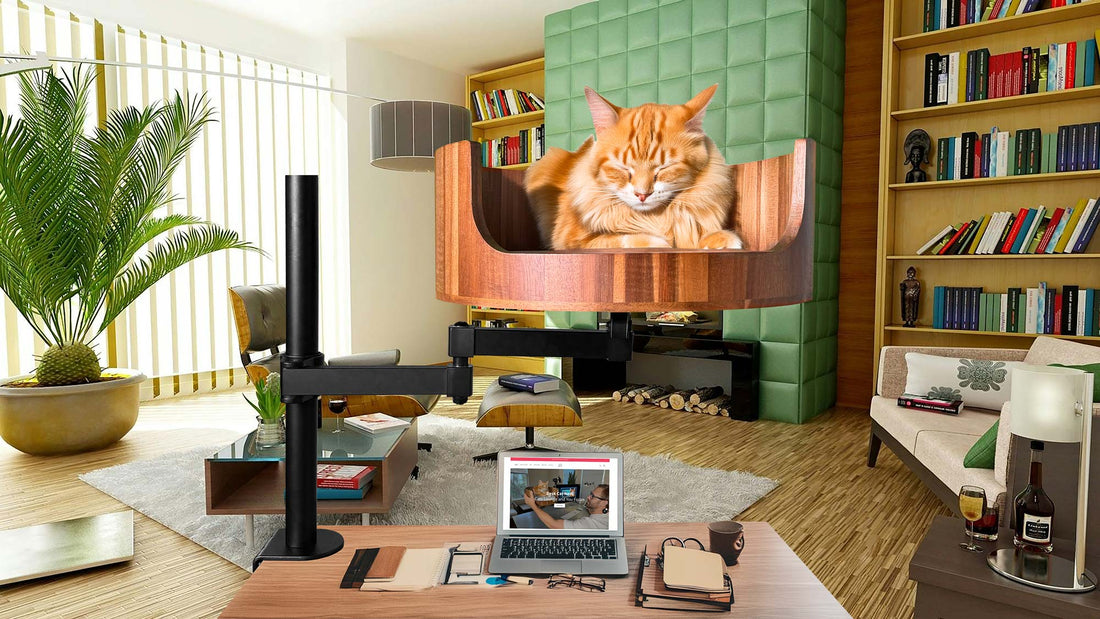
Do Cats Eat Spiders? Understanding Feline Behavior
Share
Cats are fascinating creatures with a wide range of behaviors that often leave us puzzled. One common behavior that many cat owners may observe is their feline friend hunting down spiders in the house. But do cats actually eat spiders, or are they just playing with their prey? In this article, we will delve into the world of feline behavior to uncover the truth behind why cats are so drawn to these creepy crawlers.
Our investigation will explore the instinctual drive that motivates cats to hunt and consume spiders, as well as the potential risks and benefits associated with this behavior. Additionally, we will discuss how cats' hunting instincts are influenced by their domestication and what pet owners can do to discourage their furry friends from indulging in this natural but potentially harmful habit. By gaining a better understanding of why cats eat spiders, we can learn how to better care for our beloved feline companions and create a safe and enriching environment for them to thrive in.
1. Cats may eat spiders as a natural instinct due to their predatory nature and desire to hunt.
2. Consuming spiders can provide some health benefits to cats by introducing certain nutrients into their diet.
3. It is essential for pet owners to understand why their cats may be inclined to eat spiders and monitor their behavior for any potential risks.
4. Cats may also play with spiders before consuming them, displaying their hunting behavior and natural instincts.
5. Providing cats with a well-balanced diet and enriching environment can help curb their desire to eat spiders.
Do Cats Eat Spiders?
Cats are known for their curious and playful nature, often hunting small insects and animals. One common question that many cat owners have is whether cats eat spiders. In general, most cats will play with spiders by batting them around or even chasing them, but they may not necessarily eat them. However, some cats may indeed eat spiders due to their predatory instincts. It's important for pet owners to understand their cat's behavior and take necessary precautions to ensure their feline friends are safe.
Understanding Feline Behavior
Feline behavior is complex and influenced by a variety of factors such as genetics, environment, and past experiences. Cats are natural hunters and may exhibit stalking and pouncing behaviors towards spiders and other small prey. This behavior is instinctual and helps cats fulfill their predatory needs. Some cats may enjoy the thrill of hunting spiders and may even consume them as a way to satisfy their natural instinct to hunt. Understanding feline behavior can help pet owners better cater to their cat's needs and provide appropriate stimulation.
Potential Dangers of Eating Spiders
While it may seem harmless for a cat to eat a spider, there are potential dangers associated with consuming these insects. Spiders can be venomous, and if a cat ingests a venomous spider, it can lead to symptoms such as vomiting, diarrhea, and even more severe reactions. In some cases, if a cat consumes a large number of spiders or other insects, it can lead to digestive issues or blockages. Therefore, it's essential for pet owners to be aware of the potential dangers of their cat eating spiders and take necessary precautions to prevent any harm.
Tips for Preventing Cats from Eating Spiders
To prevent cats from eating spiders, pet owners can take several precautions. Keeping the home clean and free of spiders can help reduce the chances of cats coming in contact with these insects. Additionally, pet owners can provide alternative forms of entertainment and stimulation for their cats, such as interactive toys or puzzle feeders. It's also essential to monitor your cat's behavior and intervene if they show interest in hunting spiders. By understanding feline behavior and taking preventative measures, pet owners can ensure their cats remain safe and healthy.
Frequently Asked Questions
Do cats eat spiders?
Yes, cats are natural hunters and may eat spiders if they come across them. However, not all cats will have a taste for spiders.
Is it safe for cats to eat spiders?
While most spiders are not harmful to cats, some species can be toxic if ingested. It's best to prevent your cat from eating spiders to avoid any potential health risks.
How can Desk Cat Nest help with keeping cats from eating spiders?
Desk Cat Nest provides a comfortable and safe space for your cat to relax and play in, reducing their desire to hunt for insects like spiders. By keeping your cat entertained and satisfied, they are less likely to engage in behaviors like eating spiders.
Will Desk Cat Nest solve the problem of my cat eating spiders completely?
While Desk Cat Nest can help reduce the likelihood of your cat eating spiders, it may not completely eliminate the behavior. It's essential to combine the use of Desk Cat Nest with other strategies, such as regular playtime and enrichment activities, to address the root cause of your cat's hunting instincts.
In conclusion, providing your cat with a Desk Cat Bed can help alleviate their natural instinct to hunt and eat spiders. By offering a comfortable and safe space for your feline friend to rest and relax, they will be less inclined to seek out insects for entertainment. The Desk Cat Bed not only provides a cozy sleeping area for your cat but also keeps them entertained with the stimulating design. Overall, investing in a Desk Cat Bed is a valuable choice to ensure your cat's happiness and well-being while also keeping unwanted critters out of their diet.



















































